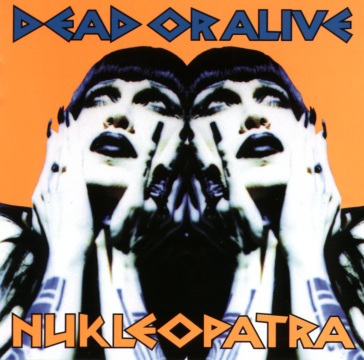NEW YORK - Dead Or Alive front man Pete Burns is as much of a dichotomy as the group's name implies.
The Cleopatra Records release is a 14-song journey back to the frenetic dance sound of the act's heyday. Creating the album was a long, arduous process for Burns. "It wasn't the easiest project to complete," he says. "We started to record it in 1994 for PWL Records [UK], Stock Aitken Waterman's label. In the middle of recording the album, the label began having a huge legal drama. At the very end, in 1995, the label completely fell apart, and everyone split. We were left with this album and no label. There's still some stuff laying in a vault somewhere, unfinished. We had to take over the production ourselves. We didn't expect to produce it ourselves. It made it difficult." This long process particularly upset Burns, as it was diametrically different from his usual work ethic. "People can go too far with artistic pretense," he says. "We like to get an album done within a six-week period. Music should be instant, and making it should be pretty instant." Despite behind-the-scenes turmoil, the album has been a hot import item since its release three years ago on Sony Japan, where the act is directly signed. Thanks to Los Angeles-rooted indie Cleopatra Records, the project has a chance to finally reach stateside audiences. The label is promoting the project on several fronts. A brand-new promo-only remix of "You Spin Me Round (Like A Record)" has been sent to club DJs, while a video of "Rebel Rebel" is being promoted to a variety of music video outlets. Also, "Sex Drive" is being serviced to mix shows and crossover radio. It's a plan that suits Burns, who's wary of being pigeonholed as only a club artist. "Our music is not purely of the dance genre," he says. "It's pop music you can dance to. A lot of producers have come out of the clubs, and they only know one way of making music, which leaves the singer redundant really." Burns adds that he believes dance music is lost in an era in which a popular remixer can suddenly become more important than artists. "Like the Junior Vasquez remix of so-and-so," Burns says. "It's all very well. He may be fantastic. I don't know. He's never mixed anything for me. But it seems really strange that people buy the DJ's [and remixer's] work as opposed to the artist's work. It's a case of the cart pulling the horse." The climate is ripe in the States for a major Dead Or Alive revival, particularly as the media renews its interest in '80s culture. To that end, the act will launch a tour that will carry it across the U.S. this fall. Burns is also preparing a greatest-hits project; he plans to give it a twist by either remixing or re-recording much of the material. "We're trying to get things in order back in the U.S.," he says. "We need to establish new relationships with new partners. We really need an American agent and manager to finish the equation." Music aside, there can be no doubt that image has played an important part in the band's success; Burns is one of the original gender benders. And that's where Burns presents his biggest mystery. An extremely shy and private person, he says he doesn't strive for public attention. Yet he demands it simply by walking out of the house, as his stage dress is also his casual wear. "Although my appearance may appear to be flamboyant, my behavior isn't-and neither is my actual personality" he says. "I suffer anxiety attacks and all that. Growing up, I realized that the freakier I looked, the more people kept away from me. It was a way of being able to sit with a certain amount of detachment." There were perks to that approach. "I'd get invited to certain places when the punk movement came along in 1977," he recalls. "I was treated like a celebrity. I got all the bonuses without really having to do anything. The freakier I looked, the easier life became. Then mainstream success landed on me, and I suddenly was asked to explain myself. I wasn't really good at it. I was too glib, not realizing that everything you say in print will be taken down and used against you at a later date." Burns views the U.S. as being accepting on many levels-not only of his outlandish image but also of musicians and artists that have changed and grown over the years. "You're allowed to fall from grace in the U.S. and then regain your stature," he says. "That doesn't happen in England. I fell from grace in Europe because I was very uncooperative with the media. I wasn't interested in purely tabloid fame, and I wasn't making music for 10-years-old kids to think they'd grow up and marry me." In the end, Burns says he'd rather do things "on a slow burn" and have a long career. "I'm no spring chicken now, and that's another thing that's great about America," he says. "You have artists of stature that have been allowed to grow old in public. We do not allow that in Britain." ("Billboard", 29.08.98) |
 Externally, there's the
glamorous, over-the-top performer. But internally, there's the almost painfully shy man.
Meanwhile, on record, there's the booming baritone that heavily contributed to the
soundtrack of the '80s with hits like "You Spin Me Round (Like A Record)",
as well as to the act's first stateside release in more than five year, "Nukleoplatra".
Externally, there's the
glamorous, over-the-top performer. But internally, there's the almost painfully shy man.
Meanwhile, on record, there's the booming baritone that heavily contributed to the
soundtrack of the '80s with hits like "You Spin Me Round (Like A Record)",
as well as to the act's first stateside release in more than five year, "Nukleoplatra".